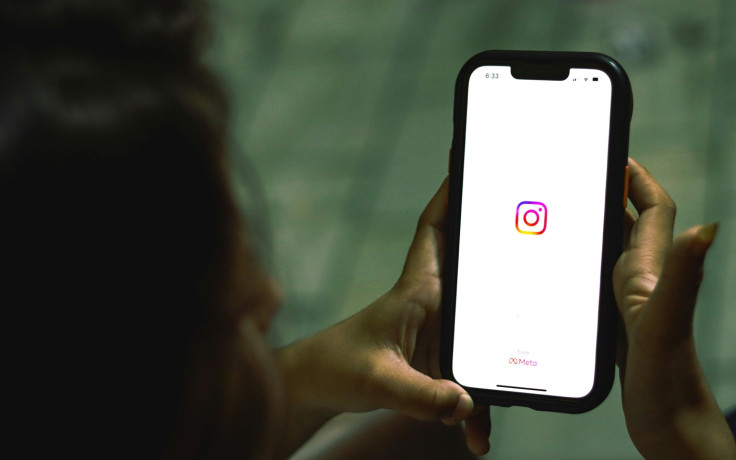NYC Sues Meta, Google & TikTok Over Children's Mental Health Crisis - What Are They Asking For?
NYC's Bold Legal Push to Hold Social Media Giants Accountable

New York City has taken a massive legal step against some of the world's most powerful technology companies, accusing them of allegedly creating a youth mental health crisis through their addictive product design and irresponsible business practices.
The lawsuit, filed in federal court in Manhattan, targets Meta (which is the parent company of Facebook and Instagram), Alphabet (the parent of Google and YouTube), Snap (the maker of Snapchat), and ByteDance (which owns TikTok). The 327 page complaint marks one of the most aggressive municipal actions yet against social media giants.
What Is New York City Seeking Through the Lawsuit?
The very basis of the case is New York City's demand for financial accountability and comprehensive and effective reform. The city claims it has allegedly spent a lot of money addressing the effects of rising anxiety, depression, and behavioral issues among children. And as per the complaint these conditions it says are worsened by compulsive social media use.
The lawsuit seeks to recover these public costs, arguing that the city's school system, health agencies, and social services have been forced to absorb the consequences of what officials describe as 'corporate negligence.' What this could possibly imply is funding for mental health treatment, counseling programs, and educational support for students whose mental health and attendance have been severely affected by social media addiction if that can even be proven.
Taking Responsibility As A Company
The city is also asking for injunctive relief, which basically means it wants the court to compel these companies to change how their platforms operate. That could possibly include modifying algorithmic recommendation systems, limiting the use of endless scrolling features, or restricting design elements that exploit psychological vulnerabilities in kids and teens.
Moreover, by designing this lawsuit as a public nuisance case, New York City argues that the companies' conduct has interfered with public health and social stability on a citywide scale and that's a major accusation on big tech. So drawing on this complaint it could be assumed that NYC is asking the court to treat these digital environments the way it might treat pollution or defective products that are harmful to the public and in need of regulation.
The complaint goes on further as in addition to financial damages and injunctive measures, the lawsuit also seeks accountability for what is being called 'gross negligence'. This complaint aggressively argues that Meta, Google, TikTok, and Snap knowingly designed addictive interfaces to allegedly increase screen time among minors, prioritizing profits in ad revenue for instance over the mental health of their most vulnerable users.
According to the complaint, 77.3% of New York City high school students and 82.1% of female students have reported spending at least three hours each day on screens, including televisions, computers, and smartphones. Why they mention this is because the filing links this extensive screen time to issues such as sleep deprivation and frequent school absences.
Again though not explicitly stated, the broader goal appears to be the creation of legal and social pressure for national reform. This could be an effort to push social media companies toward greater transparency, stricter age protections, and safer user experiences which many argue is long overdue.
On What Basis Does NYC Build This Case?
This is where things get very dramatic. NYC's argument centers on the idea that these platforms are deliberately built to keep young people hooked, there is a huge accusatory tone in that complaint. Furthermore, the complaint outlines how infinite scrolling, constant notifications, and algorithmic curation create feedback loops that exploit the psychology of kids and teens.
And it gets messier as New York City accuses the companies of allegedly using design techniques similar to those employed by gambling industries, with 'intermittent variable rewards'. For instance these could mean things such as likes etc that keep people engaged far longer than intended. As per reports, the research shows that such designs can contribute to sleep deprivation, anxiety, depression, and decreased academic performance among children and teenagers, so NYC's argument might have merit.
Beyond the psychological impact, the city brings to light the measurable burden placed on its institutions. Allegedly, schools have reported higher absenteeism rates, hospitals are seeing increased youth admissions linked to mental health struggles, and social services are stretched too thin, this is something not seen just in NYC.
The lawsuit also points to the insane rise of 'subway surfing' which is a viral stunt trend in which teenagers ride on top of subway cars. This serves as alleged evidence of social media's influence in promoting dangerous behaviors. City data shows that at least 16 young people have died in such incidents since 2023.
How Are the Defendants Responding?
Big tech is on a backfoot right now. The companies named in the lawsuit have so far denied any wrongdoing. Google though has argued that YouTube, which it owns, functions primarily as a video sharing service rather than a social network and should not be held to the same standards. Meta and TikTok have yet to come up with a detailed response.
Even if New York City's arguments strike with the public, its legal path is far from certain here. This is because proving a direct causal link between social media design and mental health outcomes is complex. So the city must somehow prove beyond reasonable doubt not only that these features are addictive but that they directly caused measurable harm requiring public intervention.
© Copyright IBTimes 2025. All rights reserved.




















